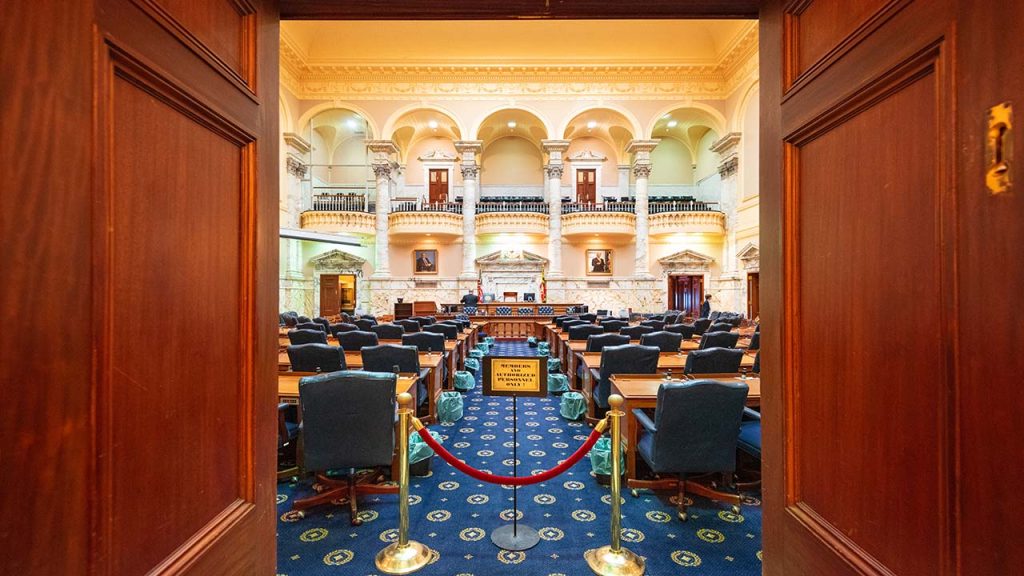
Proposed Title IX Rule on Trans Athletes Poses Legal Challenge for Athletic Directors
When the Biden administration released a proposed change to Title IX earlier this month addressing transgender athletes’ participation in school sports, the issue became a lot more complicated than many expected.
The change would prohibit schools from categorically barring transgender youth from joining school sports teams that align with their gender identity. But schools would still be able to prevent or limit trans athletes’ participation when it would conflict with a sport’s “educational objective”—which could be anything from fairness in competition to teamwork and team building.
Immediate reactions to the proposal were mixed. Some LGBTQ+ advocacy groups, such as the Human Rights Campaign, GLSEN, and the Trevor Project, labeled it an important step forward for transgender youth because the rule would challenge 21 state laws banning trans youth participation in school sports. But others saw the U.S. Department of Education’s proposed rule as a betrayal of transgender students, saying it gives schools a legal framework to prevent them from playing, according to Buzzfeed News.
On the other side of the debate, Republican lawmakers in the U.S. House called the rule a “perverse interpretation of Title IX,” that “robs women of athletic opportunities.”
Regardless of where they stand on the issue, school administrators, athletic directors, and coaches will have a complicated future as they navigate the new rule, which will be finalized following the end of the public comment period on May 15. The rule may change based on feedback the Education Department receives during the comment period. The proposal has generated over 2,800 comments in its first six days on the Federal Register website.
“There is such a divisive political atmosphere around the country and the state that we’re just going to have to wait and see how it is finally implemented,” said Julian Tackett, commissioner of the Kentucky High School Athletics Association, the state’s governing body for high school athletics.
New rule would stand up to categorical bans
The proposed rule would present a legal challenge to state laws that ban transgender youth from joining school athletic teams that align with their gender identity.
Those laws have proliferated in the last three years since Idaho became the first state to bar transgender girls from participating in girls’ sports in March 2020.
Most recently, North Dakota Gov. Doug Burgum signed two laws on April 11 that prohibit transgender girls and women from joining female sports teams at the K-12 and college levels. Earlier this year, Kansas and Wyoming enacted similar bans, bringing the total number of states with bans to 21, according to the Movement Advancement Project, a nonprofit that tracks LGBTQ+-related legislation.
Other bans are in the works, with one that would prohibit transgender girls from playing girls sports advancing in the North Carolina legislature this week.
The sponsors of that bill argued that trans girls could take away opportunities from cisgender athletes because they don’t have to deal with “biological disadvantages,” such as menstrual cramps, according to the Associated Press.
Meanwhile, Republicans in the U.S. House are planning to pass the Protection of Women and Girls in Sports Act, which would prohibit transgender women and girls from playing K-12 and college female sports. The White House has already said that President Joe Biden would veto the bill.
The Title IX rule Biden’s administration is finalizing wouldn’t immediately override all of those laws and bills. Instead, schools in states with bans would likely enter complicated legal battles as soon as students decide to sue them for violating Title IX.
“There’s a couple of ways it could be enforced,” said Elana Redfield, federal policy director at the Williams Institute, an LGTBQ+ research center based at the University of California, Los Angeles. “For one, individuals can file complaints and those complaints would be investigated, then potentially the Department of Education would play a role in mediating a resolution that might result in a change to those state policies.”
The Education Department could also tie the Title IX rule to federal funding, making it so the agency could cut funding to states that decide to stand by their bans on transgender kids’ athletic participation.
Redfield and other legal experts see Title IX as the law of the land, arguing that states won’t be able to defy it for long without serious consequences. But in states where categorical bans are already on the books, athletic directors and officials may feel they have no option but to follow state law.
That’s the case for Tackett in Kentucky, where transgender girls are banned from playing girls sports.
“We are first and foremost bound to the state laws,” Tackett said. “The federal guidance is nice and there may have to be some risk assessment made by both our courts and legislature of what happens to schools that go one way or the other, but we’re first and foremost bound by state law.”
Tackett said he doesn’t see things changing much in the near future after the rule is finalized, as he expects the issue to play out in the courts.
It’s also not a major issue for most schools as only 1.43 percent of 13- to 17-year-olds identify as transgender, according to the Williams Institute, and around 26 percent of those students play sports, according to the Human Rights Campaign. As of last August, Kentucky only had one transgender K-12 athlete, according to the Washington Post.
What the new rule means for schools
When the Biden administration announced the proposed rule earlier this month, some advocates worried that it created a roadmap for schools to prevent transgender youth from playing.
Redfield said her first reaction to the rule was that it is “not strong enough and it’s potentially unworkable.”
But now that she’s had time to review it in detail she thinks it could be effective in protecting trans athletes.
“My perception is that this rule is going to certainly protect a number of trans people and that it would really call into question all of these state bans that have been put into place,” she said. “So in many ways, it’s a very strong statement of guidance, but there are still some ways in which it might present uncertainties that would allow for trans people to be discriminated against.”
If schools are going to develop policies that prevent certain students from playing a sport, the rule would require them to consider a number of different factors.
Those considerations would include students’ grade level and the sports’ educational objective. For elementary-age students, the objective is more likely to be learning about teamwork than rigorous competition, making it more difficult to justify a ban of transgender students, according to the Education Department.
Schools would also have to consider participation criteria published by sports governing bodies such as the NCAA and physical requirements that vary widely from sport to sport, according to the department.
Finally, schools would have to ensure that any policy that prevents a student from playing a sport minimizes harm to the student, according to the proposed rule.
Those steps would present a major barrier to a school hoping to limit transgender students’ participation, Redfield said. The school would have to prove that its policy doesn’t violate Title IX and that it doesn’t discriminate against transgender students.
“I don’t know that it is worth that level of cumbersome investigation and policy development and implementation that could potentially bring them out of compliance with Title IX,” Redfield said. “I think it creates a very narrow window within which you can actually discriminate against trans people.”
But some coaches and athletic directors worry about the prospect of letting schools set eligibility requirements. It puts both administrators and students in a difficult position, said Anthony Nicodemo, a boys basketball coach and athletic director at the Greenburgh-North Castle school district in Dobbs Ferry, N.Y.
“The administrators react to what the parents or community do a lot of times,” he said. “So I don’t think it’s a good idea to leave it up to individual administrators because what you’re going to have is within leagues, within athletic associations, within sections, you’re going to have all of these different rules floating around and no one is going to know exactly how to grasp them.”
Some worry rule will harm students
The rule specifically requires schools to minimize harm to students not allowed to play their sport, but coaches, transgender athletes, and parents have all said that preventing a student from playing a sport causes significant harm.
Minna Zelch’s daughter, Ember, had to wait three years to qualify to play girls softball because she is transgender. The family lives in Ohio and, in order to play on a girls team, state law requires that Ember prove that she is trans by undergoing physical examinations at her doctor’s office.
“She wanted to play starting in middle school and we didn’t apply because I wasn’t familiar with the rule—maybe she would have qualified, maybe not. I don’t know,” Zelch said. “But waiting those three years were just horrendous on her and she was way behind.”
Even that complicated requirement could change. Ohio lawmakers have reintroduced a bill that would ban transgender girls from playing girls sports, which failed to pass last year.
Telling kids they can play on a club or recreational team because they can’t play on a school team is still ultimately damaging, Nicodemo said.
“If a kid wants to play and they’re told they can’t, there’s no way to minimize the harm,” he said. “It’s not possible.”
Redfield, Nicodemo, Zelch, and Tackett all want to see more clarity from the Education Department on how exactly it plans to enforce the Title IX rules and under what circumstances a school could prevent a student from playing.
“I would like to see some real clarity on what ‘harm’ means and what harm is tolerated against trans people,” Redfield said.
Dig Deeper With Our Longreads
Newsletter Sign up to get our best longform features, investigations, and thought-provoking essays, in your inbox every Sunday.
The MEN was founded by John Huber in the fall of 2020. It was founded to provide a platform for expert opinion and commentary on current issues that directly or indirectly affect education. All opinions are valued and accepted providing they are expressed in a professional manner. The Maryland Education Network consists of Blogs, Videos, and other interaction among the K-12 community.








